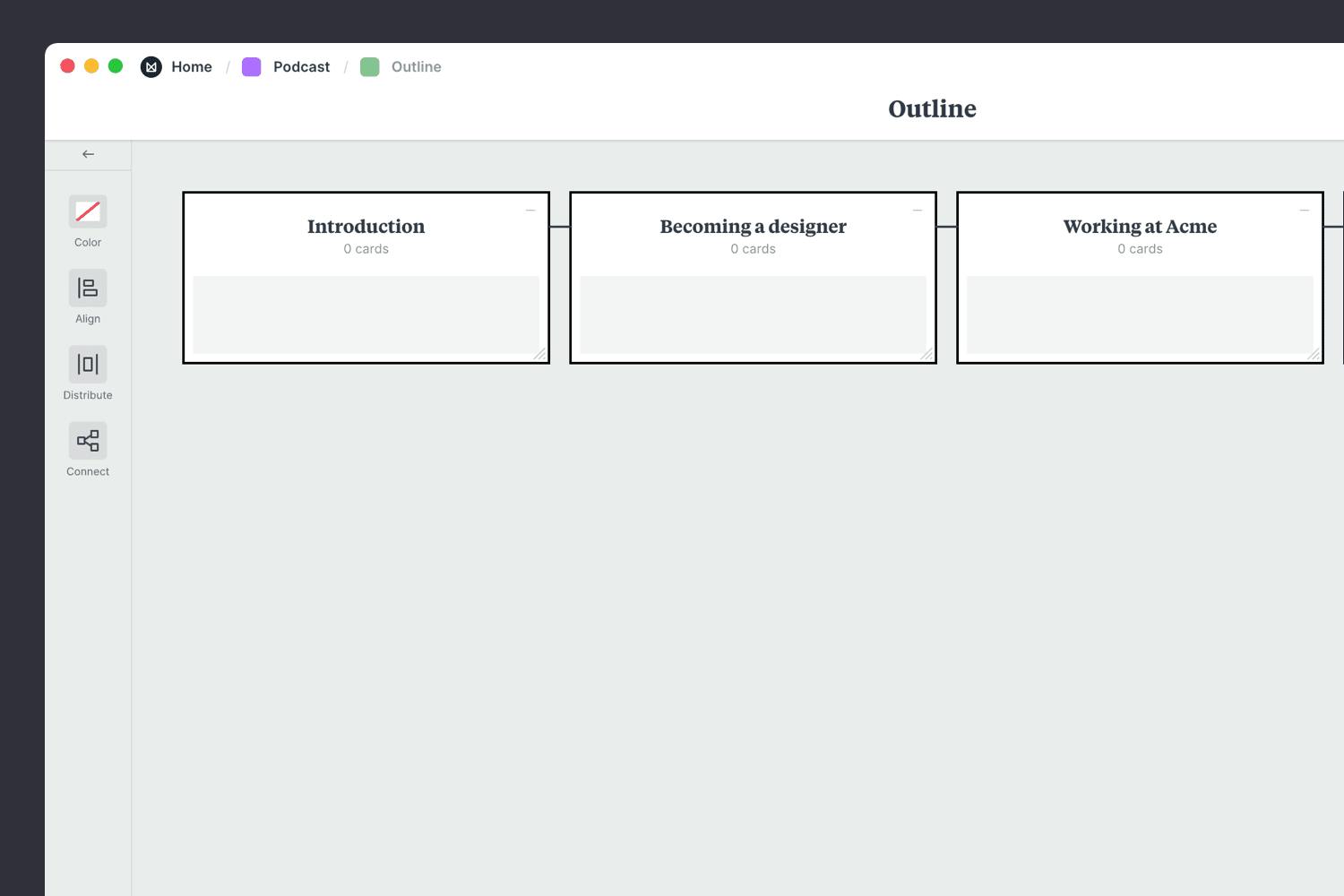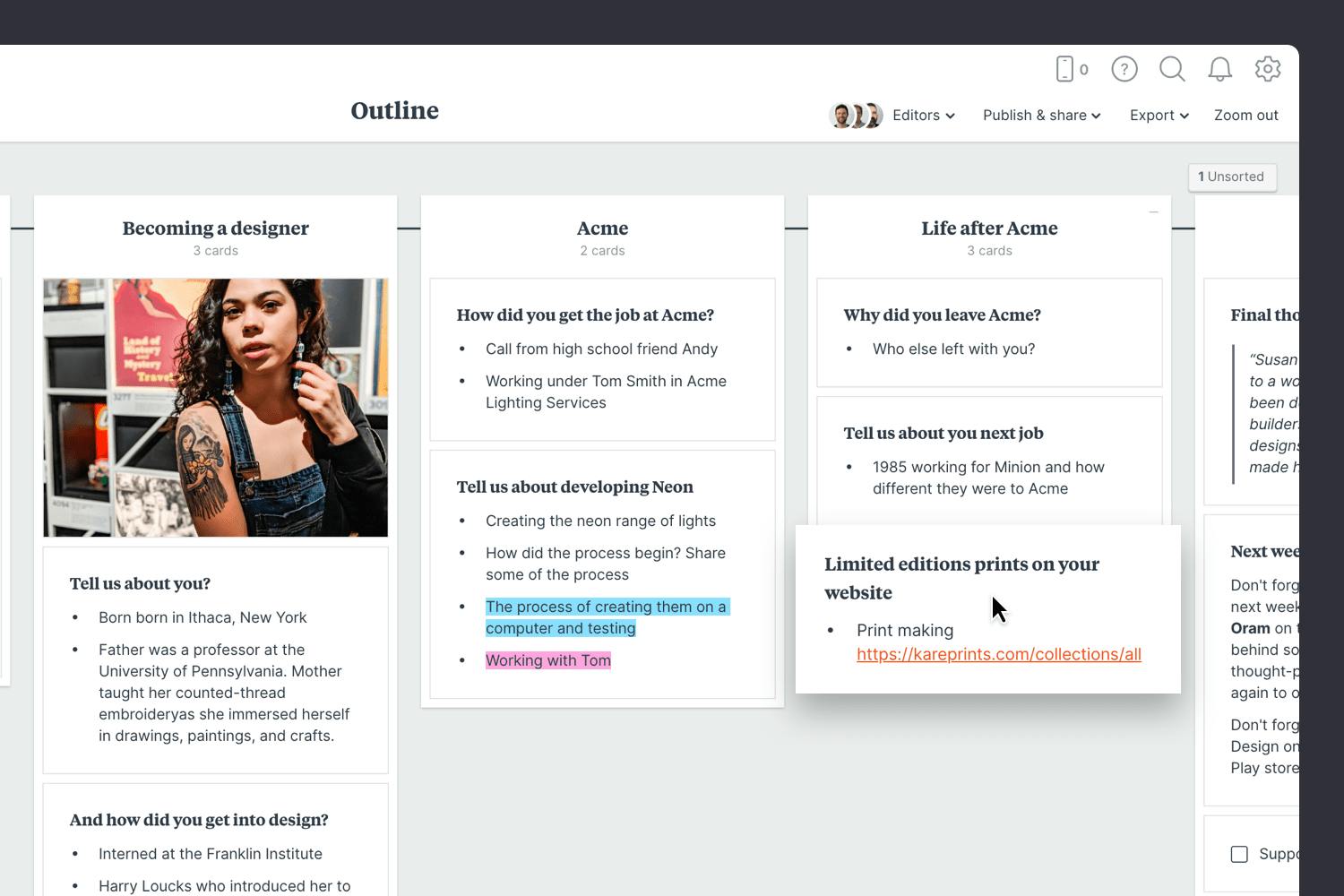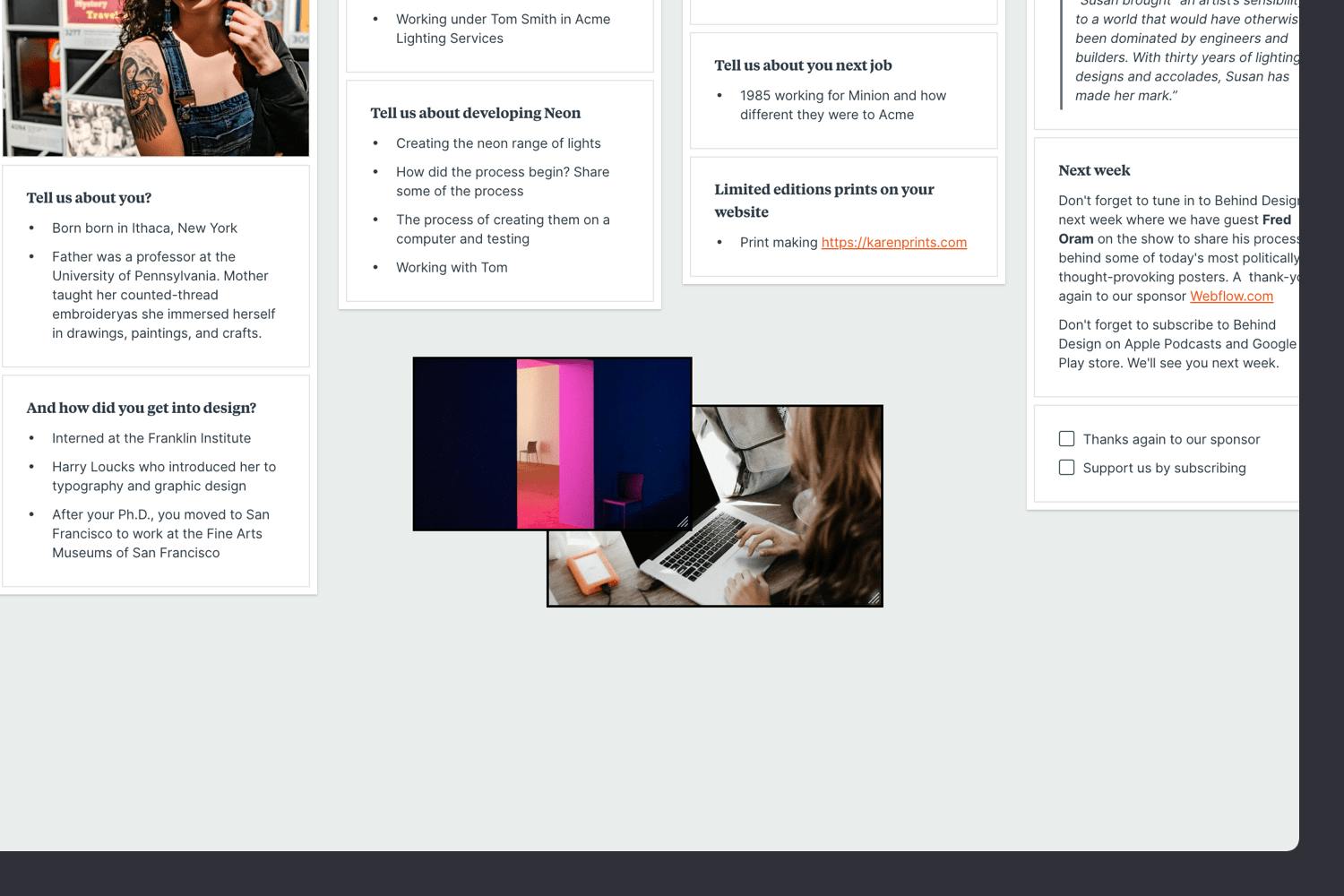Start outlining your next episode
Get started for free with one of Milanote's beautiful outline templates.
Start your outlineSign up for free with no time limit

Follow this step-by-step guide to learn the modern process of outlining a podcast episode in Milanote, a free tool used by top creatives.

A podcast outline (or script) is the roadmap for your episode. It helps you map out your talking points and plan the sequence of topics you plan to cover. It's a simple, flexible technique to help all types of podcasters stay organized and produce compelling shows.
This method is perfect for 'visual thinkers'—those who prefer to see the big picture as a sequence of events, rather than a rigid linear document. Think of it as the modern, digital equivalent to the corkboard or wall of sticky notes, but much easier to manage.
In this guide, you'll learn the modern approach to outlining a podcast using Milanote. Remember, the creative process is non-linear, so you may find yourself moving back and forth between the steps as you go.
Start by laying out the major topics or questions you know you want to cover. A great place to start is with the traditional storytelling structure of beginning, middle, and end. Don't worry too much about the order or details yet, just get the main parts out of your head. This is a quick flexible way to brainstorm the centerpieces of your show.

Create a new board for your outline.
Drag a board out from the toolbar. Give it a name, then double click to open it.
Add a Column for each key topic.
Name it, then drag any relevant notes or images into your column
Next, add a sentence or a bullet point for each talking point or question you might cover. There are no rules for how much detail to add, do what works best for you. You'll be referencing these as you record your podcast, so try and keep them short, snappy, and easy to scan as you're talking. They're the equivalent of cue cards you might use when giving a speech.

Add a note to describe the talking points.
Start typing then use the formatting tools in the left-hand toolbar.
Seeing your episode at this level lets you make connections between themes and concepts you might otherwise miss if you wrote a script in a word document. Re-read your outline so far. Look for points that feel out of place. Perhaps your transitions need some tweaking or a topic appears without a proper introduction. Highlight areas that need more work and move points around to get the sequence just right.

Drag talking points around to get the sequence right.
While imagery probably won't make an appearance in your podcast, this is a great technique for kickstarting new ideas. Experiment by adding images or video clips that relate to your topics. You can have them on-hand and reference the details when recording to tell a more vivid story. Try saving images from Google Images, Pinterest, or Milanote's built-in image library.

Use the built-in image library.
Search over 3 million beautiful photos powered by Pexels then drag images straight onto your board.
Embed Youtube videos or audio in a board.
Copy the share link from Youtube, Vimeo, Soundcloud or many other services. Drag a link card onto your board, paste your link and press enter.
With any creative technique or project, it’s important to be open to constructive feedback. Now that the first version of your outline is done it's time to ask for specific feedback on the sequence and talking points from your co-host or team. Make sure you stay open to suggestions and improvements and try not to take criticism personally.
If you're interviewing a guest, it's helpful to share the outline with them before recording. This gives them the opportunity to prepare and results in a deeper, more lively conversation.

Invite a co-host or guest to review the outline.
Open the "Editors" menu from the title bar of your board. Add email addresses of the people you'd like to collaborate with—they'll receive an invitation via email.
Start a comment thread.
Drag out a comment from the toolbar on the left and place it on your board. Other editors can reply to your comment.
Mention others to get their attention.
Type '@' in any text field to mention someone who has access to your board. They'll receive a notification and be able to respond to your comment.
Now that you've finished your outline, you can start recording, confident that your episode has a strong foundation. If you're starting a new show right now, use the free outline template below to start mapping it out or read our full guide on How to plan a podcast.
